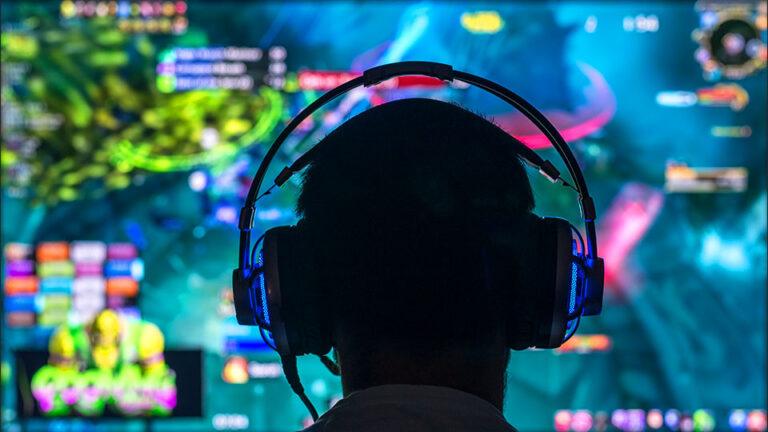
Finding a mentor is something that everyone pursuing a career in the creative arts may want to do at some point. Even the best artists need to have someone at their side who can give them advice on what to do, why they are doing what they are doing, and how to move on to the next level. Some people end up being mentors even though they do not feel they have reached the height of their creative potential. There are a few tips listed below that explain how to find a mentor, what a mentor can do, and why the mentoring relationship can be beneficial for both parties.
Who Is A Mentor?
A mentoring relationship does not need to have a grandiose story behind it. There is no reason for a creative artist to find a mentor at a specific time, and artists do not need to find their mentors through unbelievable means. In most cases, the mentor and mentee will find each other in artistic/creatives circles, online, or through a mutual connection.
If someone is seeking a mentor, they need to let older creative artists know they would like some guidance. It is not necessary to call this a mentoring relationship so much as just being open to hearing and trying new ideas. The relationship will grow over time, and the young creative artist can go to their mentor over and over for guidance throughout their career.
A mentor is not obligated to give assistance to anyone. It is best if the two come together naturally. There are creative artists available and looking to mentor others, some may be teachers already and some may just be older artists who feel they can offer good advice about developing an artistic career.
Mentors Know the History of Their Craft
Mentors are usually individuals who know both their craft and the history behind it as well. For example, an audio engineer or game developer mentor can answer questions about how engineers/editors/producers used to cut tape to edit. This may help in understanding the origin, set-up and needs of new digital technology. If a young video game designer has a better understanding of how the original video games were developed and played it can only make their own work more unique. Personal stories from a mentor can educate the mentee and provide a knowledge base to create new ideas.
A mentee who is truly willing to learn must ask how they can make choices that will improve their craft, how they can incorporate older techniques, and ask for perspective on the work that they currently create. The best audio engineers, game and web designers, writers and animators are not only aware of where they came from and how their own art has grown, but also how the industry as a whole has developed over time, to see where the future of that industry and their place in it lies.
Mentors Often Have Equipment
A mentoring relationship can start by simply asking a person to borrow a piece of equipment. The young audio producer who borrows a equipment from an older producer can ask about where that person bought their equipment and why they prefer that model or make. In fact, this is the time that most people get used to talking to each other. If the mentor and mentee have a good relationship, they might plan to talk more often.
Mentors may offer to lend mentees old equipment they’re no longer using or they may sell it at a discounted price and offer to show them how to use it. In this way, older creative artists can pay it forward with generosity to the younger generation. In fact, this is one of the best ways for people to meet. Talking about equipment or buying from someone with experience often brings along advice that can be used in the future.
Mentors Have Connections
Mentors often have industry connections that mentees do not have. Mentors can pave the way for new artist relationships by allowing the mentee to assist them in their own work, thereby providing opportunities for a mentee to learn and enlarge their creative network. The mentor and mentee should decide together what their boundaries are within their working relationship. Most people who have a mentor never outgrow that relationship, but the dynamics can change over time.
As the mentee begins to build a name or brand for themselves, they may still need advice from their mentor. Both parties need to be willing to air any differences that arise as they come up. It is important to remember that the creative arts industry can be both collaborative and competitive. The best mentors are the ones who let their mentees shine in their own right.
Is This an Apprenticeship or a Friendship?
Every relationship is different. When an individual is younger and less experienced the relationship may have more of an apprenticeship element so that they can learn all the important elements of their profession. An older or more experienced mentee may only need career advice and networking assistance.
Needs change over time, and good mentors allow their mentee to make their own decisions. This is a time when the mentee can make mistakes that are necessary for growth. The best mentor will give good advice, but allow the mentee to make their own choices, and support them if they fail.
Do These Relationships End?
The mentor/mentee relationship never truly ends, but they do change over time. The mentee could go on to be very successful, and that means that the two have a more adult relationship than they did in the past. They can interact as peers in a more direct way because they have both had their own successes. In addition, a mentee may use their experience in this relationship to become a mentor to someone else.
Mentors Are Not Obligated to Help Everyone
Everyone who has been on an airplane has heard the flight attendant tell passengers to put on their own oxygen mask before helping a child or the person next to them. The reason for this is quite simple. If the passenger cannot breathe, they cannot help anyone else. This also means that both people will be without oxygen.
The same is true for a mentor. The mentor needs to know their own limits. If the mentor has room in their life for just one mentee, then they should help only one person. If the mentor has room in their life for more than one mentee, they can take on multiple individuals. This decision is up to the mentor, and it is the mentor’s job to be aware of their own limits and mental health needs so they can really support as many people as they have chosen to mentor.
Both Parties Should Learn
Mentors and mentees find each other because of shared interests and goals, and so they can both learn from each other in this relationship. Someone who is familiar with the process knows that often the mentee has fresh new ideas that the mentor needs to hear. Equally, the mentor has years of knowledge and experience that is extremely valuable for the mentee to learn.. Both parties are learning, and both will become better creative professionals because of it.
Conclusion
The mentor/mentee relationship is one that must be treated with care. Individuals pursuing creative careers will benefit from as much education and experience in their chosen field as possible. A mentor can be a valuable part of that experience as someone who listens, guides and provides artistic connections and advice.
Did learning about how to find a mentor in the creative arts interest you? If so, explore University of Silicon Valley’s technical degree programs and discover what your future could hold. Whether you’re getting ready to start your freshmen experience or considering transferring to one of our dynamic technical programs, we’re here to help guide you through any questions or concerns you may have. Have a look at the degree programs we have to offer and get to know our majors, concentrations and student work.
University of Silicon Valley is uniquely poised to offer a meaningful and valuable education for 21st century students. We believe in an education that directly correlates with the work you’ll be doing after you graduate. Interested in learning more? Contact Us today.


